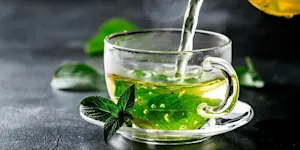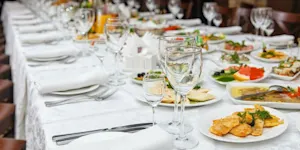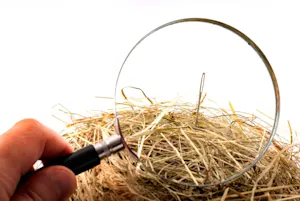What Makes This Word Tick
"Blanch" is a curious little verb that carries with it a palette of meanings, all revolving around lightening, whitening, or scaring the color out of something. It’s often used in culinary circles to describe a quick boil of vegetables to enhance their brightness—and who doesn't love a vibrant plate? In other contexts, it can refer to turning pale out of fear or surprise.
If Blanch Were a Person…
Imagine Blanch as a meticulous chef who's always runway-ready, dressed head-to-toe in crisp, clean whites. This person is a stickler for details, always ensuring everything is picture-perfect and precise, perhaps even going a tad overboard with the lemon juice. Yet, there's a nervous edge, as if they're perpetually expecting a surprise inspection.
How This Word Has Changed Over Time
Blanch has morphed slightly over centuries, primarily maintaining its core meaning of whitening or making pale. Originally from Old French, it has traveled through time like an ancient dye house steward. While its culinary connotations gained traction, it also held a figurative meaning of rendering something pure and acceptable.
Old Sayings and Proverbs That Use Blanch
While not a frequent flyer in old sayings, you might have heard whisperings in the halls of cuisine: "To blanch is to prepare for flavors untold," evoking the preparatory nature that blanching serves in cooking—both physically and metaphorically setting the stage.
Surprising Facts About Blanch
Blanching not only makes vegetables more aesthetically pleasing but also helps in preserving nutrients when done correctly. In another surprise twist, the term is often misrecapped by non-gardeners as the bending or curling of leaves due to sudden changes in temperature—close but not quite!
Out and About With This Word
You’d find "blanch" in gourmet kitchens where chefs "shock" vegetables after boiling to make them vivid and tender. It's also used metaphorically across many domains, from botanical blanches where flowers lose pigment to epicurean critiques when dishes lack zest.
Pop Culture Moments Where Blanch Was Used
In classic food shows like Julia Child's, blanching is a starring technique that gets the royal treatment. The chill from popping parboiled verdant beans into iced water—in full technicolor—makes even the most casual cook sit up and pay attention.
The Word in Literature
"Blanch" is a handy word when describing a character's loss of composure or an eerie transformation in mood-scape as if the world drained of color. You might find it slipping quietly into gothic tales or intense dramas, where emotions turn faces pale.
Moments in History with Blanch
During the Victorian era, facing scandal might cause one to physically 'blanch,' or grow pale, amid high-society gasps. Meanwhile, kitchens of yesteryears ritually blanched vegetables as an artful skill passed down generations.
This Word Around the World
Interestingly, in French, "blanchir" not only means to blanch but also to launder or whitewash—a nod to the dual life this word lives. Meanwhile, in Italian, “sbiancare” captures a similar essence, often echoing across culinary exchanges.
Where Does It Come From?
Tracing its roots, "blanch" originates from the French word "blanc," meaning white. It’s an evolution from fanatical cleansers to skilled culinary artisans, holding a historical mirror to habits of purification and preparation.
How People Misuse This Word
People sometimes confuse blanching with boiling, which misses the cooling shock treatment—key to the technique. There’s also confusion with complete whitening, whereas blanching might not always result in permanent colorlessness.
Words It’s Often Confused With
Bleach: Involves chemical lightening, not just a temporary color loss or cooking technique.
Boil: A step in blanching, but it's only half of the story without the cooling phase.
Whitewash: More metaphorical or used in cover-up scenarios rather than culinary processes.
Additional Synonyms and Antonyms
Synonyms include "parboil," "whiten," and "pale." Antonyms might be "color," "tan," or "darken," embodying the vividness blanch often counters.
Want to Try It Out in a Sentence?
After a brief blanch, the asparagus retained its vibrant green hue, perfect for the photo-ready dinner party plate.
















